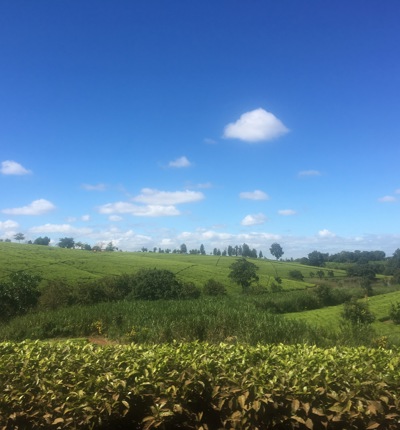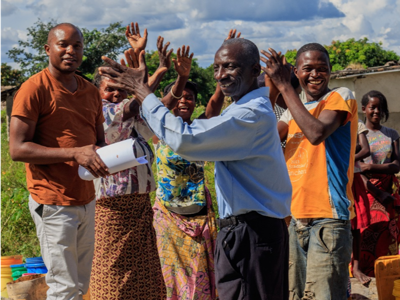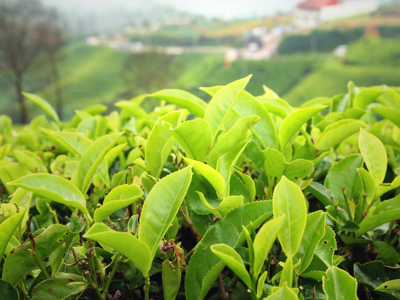
Women claim systemic sex abuse on tea plantations owned by British brand suppliers
Women who work on southern Malawi plantations that supply well known tea brands are suing their employer Lujeri and its British parent company PGI over allegations of systemic sexual harassment including rape, assault and discrimination.
Posted on 28 March 2021
Household tea brands who list Lujeri in Malawi as a supplier on their website include Tetley, Typhoo, Unilever (PG Tips, Lipton), Ringtons, Betty’s and Taylors (Yorkshire Tea).
The Sunday Times reports that Tetley has temporarily suspended Lujeri supplies pending investigation of the claims. Lujeri is also a major supplier of macadamia nuts, grown in its Malawi orchards.
Lujeri and its UK headquartered parent company, multinational PGI, have been served with a claim issued in the High Court in London for a failure to protect women employees from rape, sexual assault, sexual harassment, coercion and discrimination by male workers.
The claims, which are yet to be proven before the court, list 22 instances of sexual harassment, 13 instances of sexual assault, 11 instances of coerced sexual relations and 10 instances of rape. Half of the Claimants were working in the macadamia orchards when their mistreatment happened.
Lujeri says that it works with and is independently audited by the Rainforest Alliance, UTZ and Fairtrade. The Rainforest Alliance code requires that workers are treated respectfully and are never subjected to threats, intimidation, sexual abuse or harassment, or verbal, physical or psychological mistreatment. The Fairtrade certification is currently suspended pending further investigation.
PGI is the parent of a group companies employing thousands of people in Zimbabwe, Zambia and Malawi, including 13,000 in its food group. Gross profits in 2018 were £25.5 million and tea accounted for half that sum.
Lujeri, a Malawian tea company, wholly owned by PGI since 1996, owns 3,000 hectares of tea plantations and produces 12,500 tonnes of tea from 55,000 tonnes of green leaf annually across four factories. It has 9,000 employees, plus 700 hectares of macadamia orchards.
Over several years, the companies have been involved in education, campaigning and pledges of commitment to better labour conditions for workers. PGI states on its website that its subsidiaries aim to apply higher standards than are required by local labour laws.
Yet, Leigh Day lawyers who represent the women claimants say there is still a systemic problem of male workers at plantations abusing their positions of power in relation to the women working under their supervision with rape, sexual assault, sexual harassment, sexual coercion and discriminatory behaviour. The claimants, among the poorest in the world, often submit to the sexual harassment for fear of losing their employment.
One 39-year-old mother of two began to be sexually harassed by a supervisor soon after she started work as a macadamia nut picker in early 2018. She continually refused his demands for sex and her pay was deducted. After several more weeks of harassment, the supervisor raped the Claimant and she became pregnant as a result and later gave birth to a stillborn son in December 2019.
One 45-year-old mother of four, a tea picker on the Sayama tea estate between February 2017 and December 2017, reports being sexually harassed, raped and coerced into sexual intercourse by a supervisor on the tea plantation.
The harassment began one month after she began her job, when the supervisor threatened her that unless she had sex with him, she would lose her job. She refused several times, but eventually agreed for fear of losing her job. After she agreed a second time, her contract was not renewed, and she was told she had been complaining constantly during sexual intercourse.
Another woman, a 30-year-old mother of three, began work in a nursery on the estate in 2013. After she refused to have sex with a supervisor she was transferred to work as a tea picker. She left the company in 2019 after several instances of sexual harassment and sexual assault.
Several claimants allege that they lost their employment or suffered salary deductions as a direct result of the abuse. The majority of the Claimants did not report the abuse for fear of losing their jobs or retaliation from their abuser.
The endemic problem of sexual harassment and abuse of women of southern Malawi where the tea plantations are located is well known and was highlighted by Oxfam in 2016.
The claim against PGI and Lujeri is being brought in England but will be determined under Malawi law. As a former UK protectorate, the common law of Malawi is similar to English law, while the Malawi constitution provides for the right to fair and safe labour practices, the right to full and equal protection by the law, and the right not to be discriminated against on the basis of gender.
No Defences have yet been served by the companies. PGI has applied to strike out the case against it, while Lujeri argues that the claims should be brought in Malawi rather than England. A hearing to determine both matters will be held in the English High Court on 28, 29 June, 2021.
Last month another UK based multinational, Camellia Plc, settled claims arising out of allegations of rape and other forms of gender-based violence on Malawian tea estates. The Claimants in that case were also represented by Leigh Day.
Leigh Day partner Sapna Malik said:
“Our clients are incredibly vulnerable women who have fallen prey to systemic and pervasive sexual harassment, assaults and in several cases rape, by their male colleagues. Many have been forced into coercive sexual relations by their male superiors just to keep their jobs, feed their families and avoid further victimisation at work.
"Yet, despite this endemic culture of rape and coercion, the abuse has gone largely unchecked. Our clients call on PGI and Lujeri to stop raising technical challenges to their claims, compensate them for the harm they have suffered and learn from them about the realities on the ground, so that appropriate measures and deterrents are finally put in place to bring this cycle of abuse to an end.”







